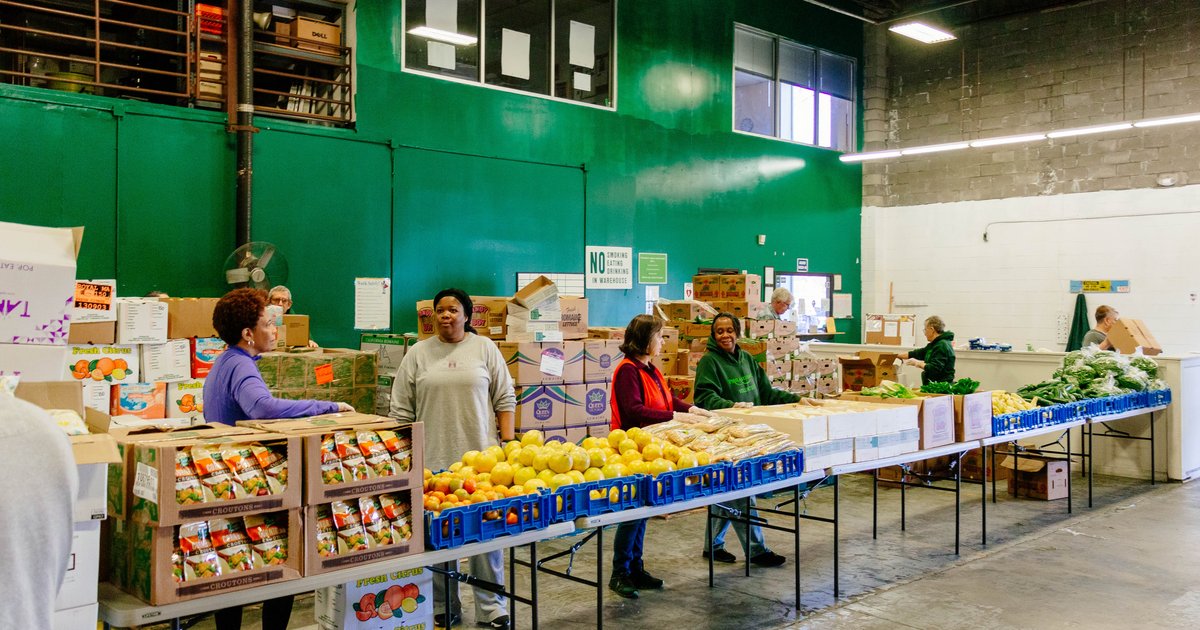Supplemental Nutritional Assistance Program recipients in Pennsylvania already were facing rising grocery costs and qualification changes, but they were dealt another blow at the end of last week: the possibility that they won’t receive federal assistance at all in November.
In Philadelphia, 475,000 people receive SNAP benefits, and they’re mostly families with children, seniors and people with disabilities. Recipients get a debit card from the government, and funds of varying amounts are added each month based on household size.
MORE: Gov. Josh Shapiro’s new memoir to offer insights on his rise to political stardom
But come November, they won’t be refilled unless the federal government ends its shutdown, state officials said Friday. That’s because the U.S. Department of Agriculture has suspended funding, and Pennsylvania officials say the state does not have money to fill the void for the 2 million residents impacted.
It’s an unprecedented development. Even during the 35-day government shutdown in 2017, SNAP benefits remained in place. Should it come to fruition, food distribution services, community fridges and food pantries are bracing for a huge increase in need, because they will be left to help fill in the gap to put food on the table.
But these organizations say they won’t have the resources to fully fill the void due to SNAP’s large reach. For every $1 of food provided by a food bank, $9 are provided by SNAP funds, the city’s Community Legal Services says.
“To think that every food bank would have to grow ninefold overnight to keep up with the need is just not realistic,” said George Matysik, executive director of Philly’s Share Food Program, which supplies food pantries and community fridges. “So, what that means for us is that we’re going to feel a crush for our services unlike anything we’ve ever felt before.”
The issue is aggravated by Pennsylvania legislators having failed to approve a state budget. For food banks, that means that two state programs distribute food, the State Food Purchase Program and the Pennsylvania Agricultural Surplus System, haven’t been operating since July. It also means that unlike other states, Pennsylvania lawmakers likely won’t be able to release funds to keep SNAP afloat.
Matysik said this adds pressure to an already troubling time for people facing food insecurity. The number of city residents seeking food assistance through Share Food Program has gone up 120% over the past three years, partially because assistance programs established during the COVID-19 pandemic expired. At the same time, he said, Share Food Program also has 20% less funding and food to distribute.
“It’s going to put a massive strain on a network that is already undergoing a really severe lack of resources and increased needs,” Matysik said. “For both us and the organizations that we serve, we’re already having to do so much more with so much less.”
There are nearly 700,000 people in the Philadelphia region facing food insecurity, and that number has increased by 44% in the last two years, said Callie Perrone, government affairs officer for Philabundance. In the city, 1 in 6 people are facing food insecurity, including 1 in 3 children, according to Philabundance.
The rise in people facing food insecurity is partially due to the increased cost of living and inflation on food prices, on top of the COVID-19 supports ending, Perrone said. As of August, the cost of groceries was up 29% since 2020, NPR reported.
That has meant more reliance on food pantries, even ahead of the SNAP pause. And the budgeting bill President Donald Trump signed in July also stiffened SNAP requirements, costing an estimated 42,000 Philadelphians their benefits.
“A lot of the pantries in our network, a lot of our food pantry partners, are experiencing empty shelves, because the reality is that the need is outpacing the resources that we have,” Perrone said.
In anticipation of the halt of SNAP benefits, Share Food Program and Philabundance said they’ve been acquiring additional food sources and are asking for donations. Canned goods and monetary contributions can be made to either organization, and Share also operates 50 community fridges in the city that residents can stock with produce, premade meals and pantry staples.
It’s unclear when the shutdown, the second-longest in history, could end. Republicans in the Senate need at least eight votes from Democrats to approve a temporary spending bill to fund the government, and Democrats have demanded extensions of Affordable Care Act subsidies before they’ll vote to approve funding. Aside from the shutdown ending, SNAP could be restored if the U.S. Department of Agricultures releases funding for it.
Matysik said it feels like federal leaders are creating a new problem for food insecurity on top of existing ones.
“Our own federal government’s decided, rather than assist the working class, it’s using us as a negotiating chip,” Matysik said. “So that’s the challenge that we are having to try to make up for right now.”

